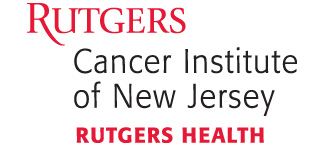Rutgers, The State University of New Jersey
New Brunswick, New Jersey
Rutgers Cancer Institute of New Jersey, first called “The Cancer Institute of New Jersey,” was born in 1993, became a National Cancer Institute (NCI) -designated Cancer Center in 1997, and achieved Comprehensive Cancer Center status in 2002, the highest and most prestigious designation from the NCI held by only a few dozen such centers. The Cancer Institute of New Jersey integrated into Rutgers University on July 1, 2013, and became an independent unit within the university as a result of the New Jersey Medical and Health Sciences Education Restructuring Act.
As New Jersey’s only National Cancer Institute (NCI) – designated Comprehensive Cancer Center, Rutgers Cancer Institute of New Jersey in partnership with RWJBarnabas Health has a team of internationally recognized physicians and researchers driven by a singular focus and mission, to help individuals fight cancer. Through the transformation of laboratory discoveries into clinical practice, we target cancer with precision medicine, immunotherapy, and clinical trials and provide the most advanced, comprehensive cancer care to adults and children. Rutgers Cancer Institute physicians and scientists work side by side to make sure the most sophisticated treatments are delivered to our patients quickly and safely — the future of cancer treatments today.
Rutgers Cancer Institute offers world-class quality cancer care providing the most advanced treatment options for patients in its New Brunswick facility, Rutgers Cancer Institute of New Jersey at University Hospital in Newark, as well as through RWJBarnabas Health facilities. Enhancing the delivery of services on the New Brunswick campus will be the completion of the Jack and Sheryl Morris Cancer Center — a 12-story, 510,000-square-foot cancer hospital expected in 2024.
Expert teams at Rutgers Cancer Institute include dedicated specialists including medical oncologists, surgical oncologists, radiation oncologists, social workers, nutritionists, and nurses identify and meet the needs of the individual patient. Each multidisciplinary team focuses on a specific disease and is led by a physician who is a clinical and academic expert in the cause and treatment of that disease.
Multidisciplinary, clinical programs at the Rutgers Cancer Institute include: Stacy Goldstein Breast Cancer Center, Gastrointestinal/Hepatobiliary Oncology Program, Fannie E. Rippel Center for Women’s Reproductive Cancers, Leukemia/Lymphoma/Hematologic Malignancies, Liver Cancer and Bile Duct Cancer Care Program, Blood and Marrow Transplant Program, Head and Neck Oncology Program, Cardio-Oncology Program, Endocrine and Neuroendocrine Program, Lung Cancer Program, Melanoma Oncology Program, Sarcoma and Soft Tissue Oncology Program, Neuro-oncology Program, Pediatric Hematology/Oncology Program, Phase I/Developmental Therapeutics Program, Prostate Cancer Program, Thoracic Oncology Program, and Urologic Oncology Program.
Rutgers Cancer Institute operates under a “consortium cancer center” partnership as identified by the NCI allowing for formal scientific and academic collaboration with Princeton University. This model unites the best researchers from across the state with one goal: to eradicate cancer.
Research at Rutgers Cancer Institute is currently being conducted in areas of behavioral science, precision medicine, tumor immunology, autophagy, drug development and resistance, the relationship between cellular and genetic alterations and tumor development, cancer control and prevention, bioinformatics, and cancer genomics. There are several types of clinical trials currently underway at the Rutgers Cancer Institute including treatment, prevention, screening, and behavioral/quality of life.
For more information about clinical trials at Rutgers Cancer Institute of New Jersey, call 732-235-7356 or search here for a clinical trial.


Subscribe to the Big Ten CRC Newsletter X
X Facebook
Facebook YouTube
YouTube